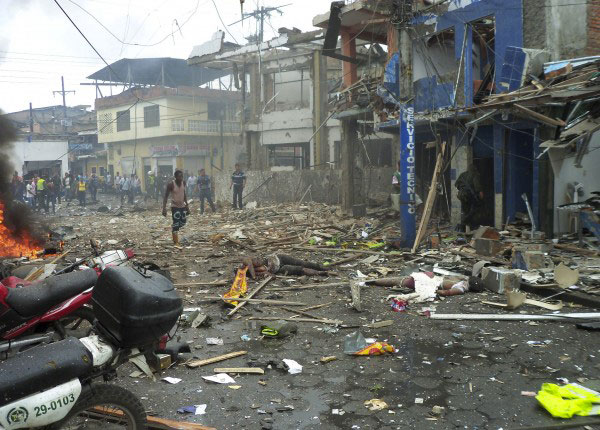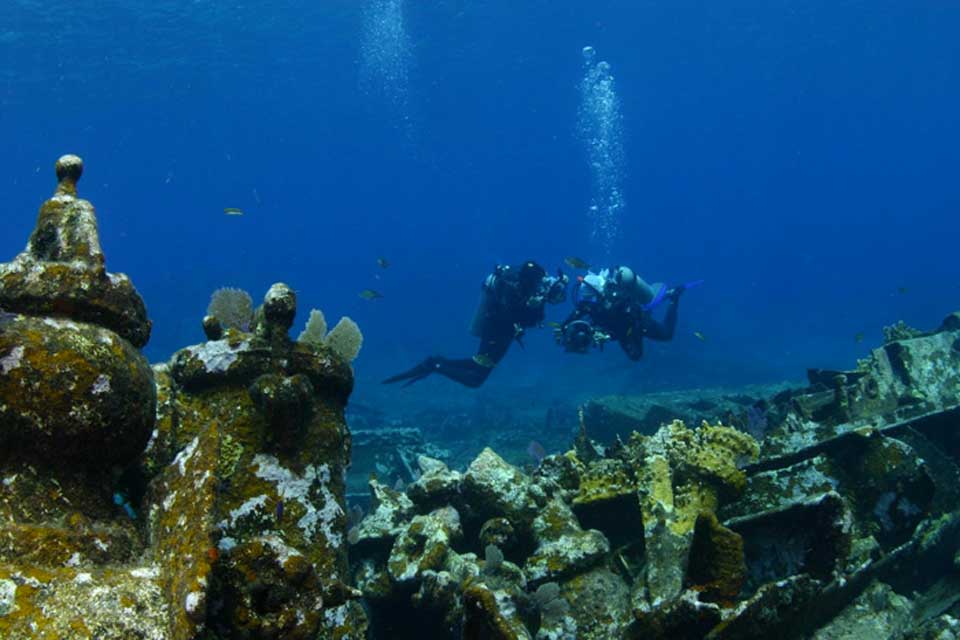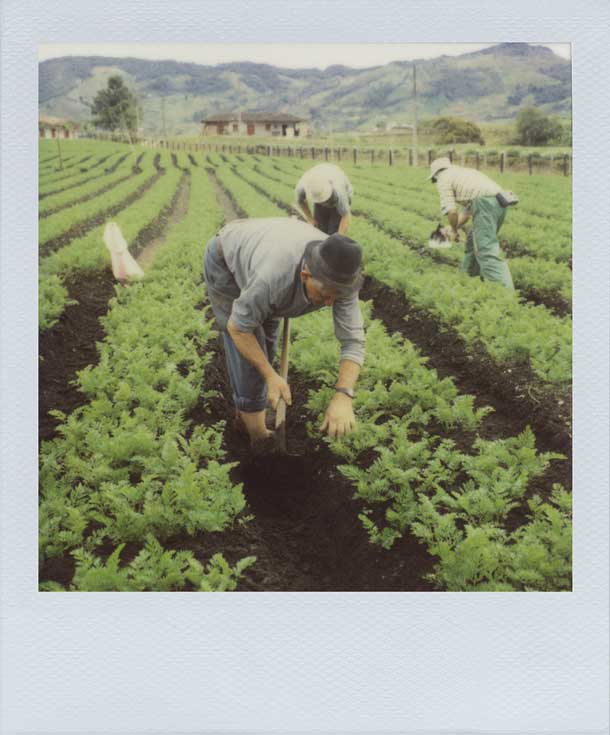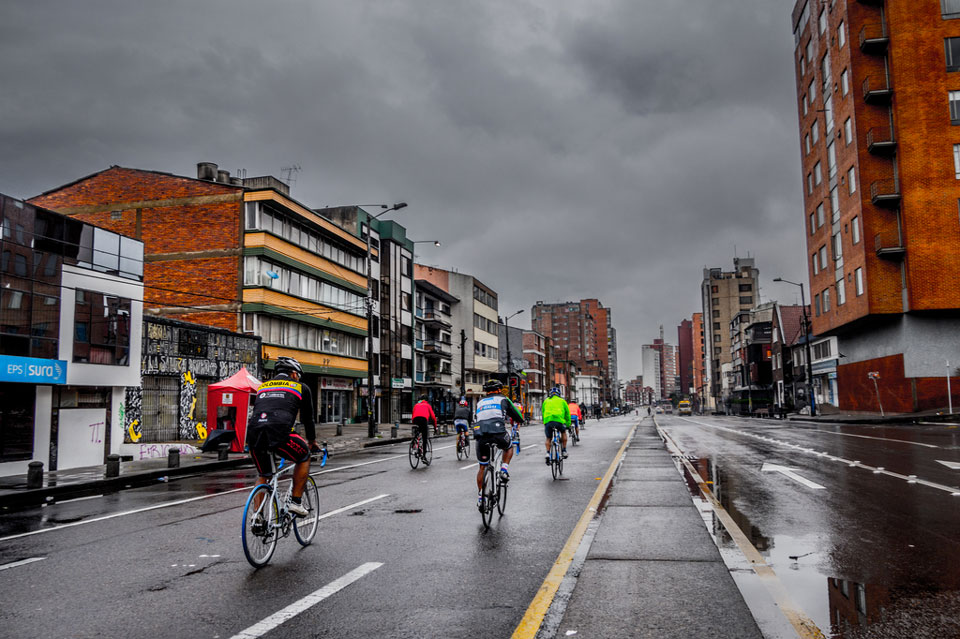
Violence is very much a problem in this part of the country, as this 2013 bombing of a police station in Tumaco shows. Photo: Cruz Roja Colombia
Human rights barrister Katherine Barnes spoke to Emma Newbery about some of the challenges faced in regions like Tumaco.
For the people of Tumaco, a city in Nariño, close to the border with Ecuador, peace remains a very distant concept. Not only is it the municipality with the highest level of coca production in the country, it’s also home to substantial illegal mining, smuggling and palm oil operations.
About 85% of the people there live in poverty, and there have already been more than 80 homicides this year.
Katherine Barnes visited Tumaco in August as part of the International Caravana Lawyers group. Since 2008, the Caravana has visited Colombia every two years with delegations of lawyers so that they can receive first hand testimony from human rights defenders.
Speaking to The Bogotá Post after her visit, Barnes explained that “the reality for people living in Tumaco is that, in the last two years, the level of violence has increased significantly, and, in the last three months, it has just sky-rocketed.”
A total of 55 lawyers from more than 10 countries took part in this year’s Caravana. They were split into groups and sent to seven different regions to interview activists, victims and community leaders. They will produce a report on their findings in the coming months, which is likely to focus primarily on the conditions for the country’s human rights lawyers and campaigners.
It was the first time that Katherine, who lived in Colombia for a year back in 2010, had been to Tumaco. “When you’re in Bogotá, sitting in Juan Valdez, it’s almost impossible to imagine what it’s like over there”, she said.
“It was grim”, the British public law and human rights barrister told us. “The housing was horrendous. We heard stories about mothers selling their daughters into prostitution. There was a mother who broke down in front of us because she didn’t have enough money to feed her baby and so she was prostituting herself – and this is in one of the most resource rich places on the planet.”
Describing the climate as one of “gang warfare”, she explained, “people said that it was in such a state of flux that they don’t really know who the new groups are.”
She also noted that people felt it was too dangerous to report crimes. “If you report a crime, even one that you weren’t directly involved in, say you witnessed it, that would be seen as attacking a particular group. So it’s just not worth it because the threat to you is so great.”
Katherine’s words echo those of numerous other observers, all of whom point to increased levels of violence and an increase in the number of killings of human rights defenders. In FARC controlled areas – relatively lawless parts of rural Colombia – other armed groups are jostling for control of the immense money-making potential.
According to InsightCrime, “Recent reports suggest that in areas where local leaders are being targeted for assassination, illegal armed groups are working to establish control of the drug trade and illegal mining, among other illicit activities.”
But in spite of the violence, local people in Tumaco still told Katherine that they would support the peace agreement, which was announced during the Caravana’s visit.
Even so, they believe the agreement is incomplete. “They think it is laughable that there is just one party to the peace agreement and that the government seems to be in denial about these other groups who had supposedly demobilised.”
She said that she was both amazed and impressed by the strength of the women she met, and the fact that they were still able to search for reasons to be optimistic. “They were telling us all kinds of of horrendous stories about their kids being shot, and being sexually assaulted and raped, but they are still so hopeful for the future.”
Katherine also holds plenty of hope that the peace agreement would be endorsed by the Colombian people, but was clear that getting a ‘Yes’ vote is just the beginning. The real challenge will lie in the implementation, and she raised serious concerns that the country does not have the infrastructure it needs.
“They’ve drawn up this agreement. But unless it actually works in practice so that people can go ahead and apply the principles to the individual cases, the whole thing is just going to break down and be a complete disaster.”
Put simply, “If this peace process is going to begin to be successful, they need lawyers. The lawyers are the cogs in the system to make it work, especially with this idea of getting truth and reparations for victims.”
And it is not just a question of implementing the peace agreement. She points out that the region desperately needs social investment to give people opportunities. “Part of the problem is that there are no other jobs for young men to go and do, so that’s why people are growing coca or joining these armed groups.”
The Bogotá Post will feature more on the troubles in Tumaco and details of the Caravana’s report in future articles.
By Emma Newbery





